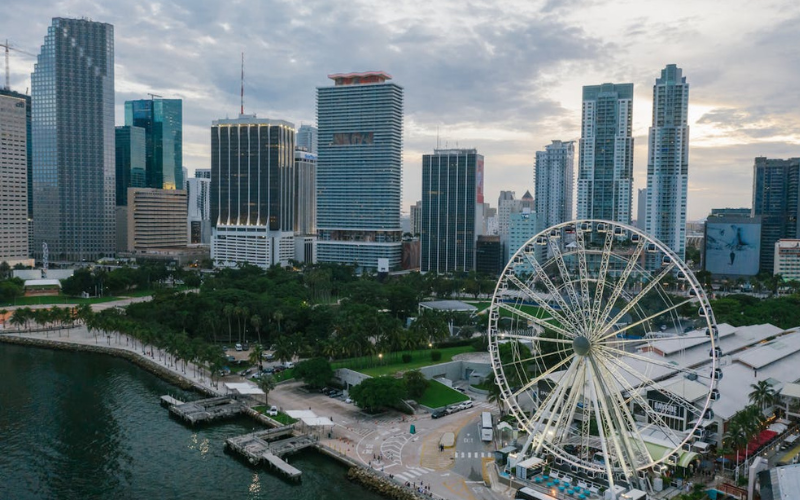We have heard all our lives that the sun never set in the Spanish Empire, especially during the sixty years that the Portuguese Empire merged into the Spanish Empire, with the House of Austria. Well, in the “British Empire” the sun has not yet set, because the United Kingdom holds its possessions around the world, a good part of which are tax havens under the magnifying glass of the United Nations Decolonization Committee, which is taking things quietly.
In the “French Empire” the sun also does not set, although the northern neighbor incorporates its overseas possessions into the French Republic, and therefore they are not colonies, but are part of France. The UK is another story. And in practice, it maintains colonies all over the world, which gives it a special and advantageous status.
Happens with Anguilla, Bermuda, Cayman Islands, Turks and Caicos Islands, British Virgin Islands, Montserrat, Pitcairn Islands, Santa Clara, Ascension and Tristan de Cunha, plus Falkland Islands and GibraltarIt is the only remaining colony in Europe and the European Union.
Pirate Caves
These British possessions enjoy great tax concessions and for this reason they are publicly described on occasions as authentic “pirate caves” where money is laundered without problems due to Its characteristics favor it. It happens in Gibraltar, in Bermuda, in the British Virgin Islands … although probably the most famous and regular area for this practice is none other than the Cayman Islands.
Pirate Week celebration in the Cayman Islands.
This British overseas territory consists of three large islands – Grand Cayman, Cayman Brac and Little Cayman – and two smaller ones located in the Antilles, between the island of Cuba and the coast of Mexico, northwest of Jamaica. In fact, it started being administered by the Jamaican colonial government in 1863 and when Jamaica gained its independence in 1962 they started to have The current status of the British Overseas Territorybeing one of the 17 Non-Self-Governing Territories under the auspices of the Decolonization Commission.
The Cayman Islands are now back in the spotlight after FC Barcelona signed an agreement with Mountain & Co to create a new company that has no operational activity in the Netherlands and the Cayman Islands, Their sole purpose is to raise capital. The Cayman Islands, in addition to being a tourist paradise, allows almost everything in tax matters and companies and investors can enjoy all the benefits of setting up companies in these islands from the comfort of their home countries.
without tax
Setting up a company in the Cayman Islands is full of incentives, especially when it comes to sectors Investment management, legal and financial services. The United Kingdom is the country with the most tax havens, by far, and among them the Cayman Islands stands out as one of the most advantageous and attractive, given that, first of all, it is a tax-free jurisdiction.
There are no corporate, property, capital gains, payroll or withholding taxes. There is also no tax on the sale of goods and services, and Residents do not pay income taxes.
For all these reasons, the Cayman Islands A The perfect place for companies to set up their subsidiary business, in order to protect part or all of your income from taxes. But, unlike other jurisdictions, in the Cayman Islands only one person can assume the role of director and/or shareholder, regardless of their nationality and place of residence, and it is not necessary for them to reside in the archipelago.
Grand Cayman, the largest island in the archipelago.
There is no minimum capital requirement For incorporation of companies, nor for the annual audit of an offshore company. Corporate bank accounts are set up in the Cayman Islands in spades and the area is widely used as an entity listed on major stock exchanges around the world. Additionally, there are Cayman Islands tax law experts offering their services from anywhere on the planet.
Five types of companies
Companies and organizations can be incorporated in the Cayman Islands based on five main types of companies, Each has its own rules, contained in the Cayman Islands Public Register. For this reason, one must carefully consider which one is most suitable depending on the type of company.
A limited liability company: It is the most suitable option for companies that will operate mainly from abroad. They have the significant advantage that the officers of the incorporated company, executives, directors and shareholders, cannot be held personally liable for the debts and actions of the entity.
Exempt company: Intended for companies doing business outside the Cayman Islands and are not required to register their members for general inspection or to hold annual general meetings in the islands.
Resident company: These are the companies that do business in the islands and therefore must have a physical office there, register their employees and report to the registry every year.
Non-resident company: They are those who do not intend to do business within the Cayman Islands and will have to associate with a local entity to do so, but are allowed to buy and sell shares of foreign companies and exempt companies
Offshore or foreign company: Companies incorporated outside the Cayman Islands, but registered under that name have the right to own property and do business in the islands, as well as the ability to associate with an exempted Cayman Limited Company.
Basic procedures
Company incorporation applications are processed in within 6 to 10 working days. Although there are different types of companies that can be incorporated in the Cayman Islands, they all have to follow a series of basic guidelines that are not very different and are common, such as booking and registering a company name in the general Cayman Islands registry and paying incorporation fees, which range from $2,000 to $3,000 initially.
In any case, all companies are required to pay an annual renewal fee of $5,000 to $6,000, not Cayman Islands dollars, which is the local currency. a Cayman dollar It equals 1.19 US dollars.
Companies are required to open a corporate bank account, and it will be necessary to fill in a detailed application form and provide various documents for its establishment. Some banks require that the main shareholders, but not all of them, be identified, as well as those responsible for managing the account. For these procedures there specialized companies all over the world Who are responsible for carrying out all procedures.
More than twenty tax havens
Last February, the Ministry of Finance and the Public Service approved the order according to which countries and territories, as well as harmful tax regimes, which are considered tax havens are determined on the basis of New international concept of “non-cooperative jurisdiction”.
With Order HFP/115/2023, dated February 9, the Treasury Department updated it in 2023 for the first time in 31 years, Reduce the list of tax havens to 24. The European Union temporarily removed the Cayman Islands from its list of tax havens in 2020, but its tax terms clearly say otherwise.
The new text updates the definition of “tax haven” and adapts it to the international concept of “non-cooperative jurisdiction” with new factors and intent. Combating fraud, tax evasion and money laundering. The rule seeks to “identify those countries and territories which are characterized by facilitating the presence of offshore companies, or through Ambiguity and lack of transparencydue to the lack of regulations with the said country on the exchange of tax information, due to the lack of an effective exchange of information with Spain or due to the results of the assessments made by the Global Forum on the effectiveness of the exchange of information with these countries, countries and territories.
In the current list of territories with non-cooperative jurisdiction, we no longer find Malta, Hong Kong or Cyprus, although new tax havens such as Bahrain, Dominica, Guam, Palau, Samoa and American Samoa have been added. In the full list of 24 regions there are a lot of them under British tutelage and others who ceased to exist. It consists of Anguilla, Bahrain, Barbados, Bermuda, Dominica, Fiji, Gibraltar, Guam, Guernsey, Isle of Man, Falkland Islands, Mariana Islands, Solomon Islands, Turks and Caicos Islands, British Virgin Islands, US Virgin Islands, Jersey, Palau, Samoa , American Samoa, Seychelles, Trinidad and Tobago, Vanuatu and the Cayman Islands itself.





